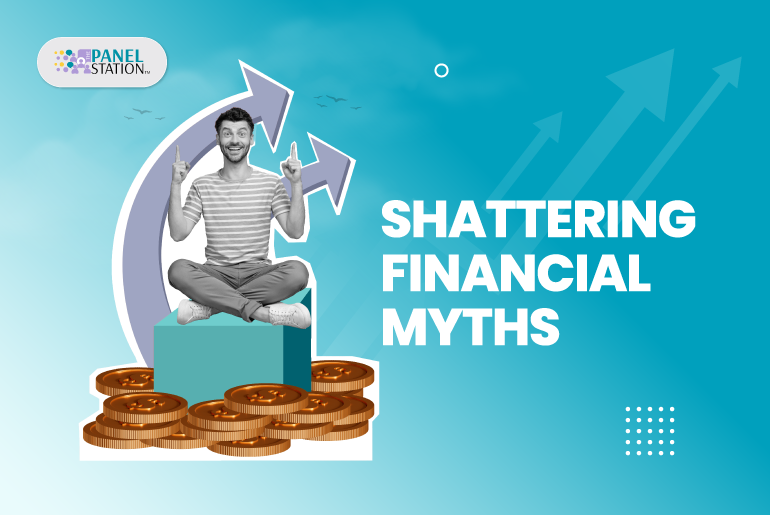When it comes to money, we’ve all heard a slew of financial advice, but not all of it is sound. Some are passed down like age-old traditions, while others pop up on social media, disguised as sage wisdom. These financial myths have a way of sneaking into our minds, making us question what’s true and what’s not. Today, we’re breaking down these myths to get to the real facts. Ready to break financial stereotypes and set the record straight? Let’s go!
You Have to Choose: Career vs. Money
One of the most popular financial myths is the idea that you must pick between pursuing your passion and making money. You’ve probably heard it before: “Do what you love, and the money will follow.” Well, that’s only half true. We’ve been conditioned to believe that pursuing a well paying career means sacrificing happiness, or worse, our dreams. But here’s the truth: financial success and job satisfaction don’t have to be mutually exclusive. It’s not about picking one over the other—it’s about making smart choices that allow you to thrive in both areas.
Money Buys Happiness (or Does It?)
Here’s a myth that’s been debated at every family gathering: money equals happiness. Newsflash: It doesn’t. But also, it kind of does. Confused yet?
Let’s break it down. Money in and of itself won’t make you happy. However, having financial stability does contribute to happiness by eliminating stress. It’s hard to feel joyful when you’re worried about how you’ll pay the rent or afford groceries.
The truth is, more money doesn’t necessarily mean more happiness. Instead of chasing an elusive number, focus on financial security and spending on things that truly bring value to your life—like experiences, not just things.
Investing is Only for the Rich (Spoiler: It’s Not!)
The classic financial myth that investing is some exclusive club reserved for those with private jets and fancy suits is false. Thanks to modern technology and the rise of fintech, investing is now accessible to everyone. Whether you’ve got $50 or $50,000, you can start investing in the stock market, real estate, or even policies. With platforms offering low fee options and beginner friendly tools, investing no longer requires a huge sum of money upfront.
The moral of the story? You don’t need to be rich to invest. All you need is a bit of knowledge, consistency, and patience. The earlier you start, the better off you’ll be in the long run.
Debt is Always Bad
Debt has gotten a pretty bad reputation over the years. But not all debt is created equal. Sure, credit card debt or high interest loans can feel like financial quicksand, but other forms of debt—like student loans or a mortgage—can actually be considered investments in your future.
The key is understanding the difference. Bad debt drags you down with high interest rates and no long term value, while good debt (like borrowing to start a business or buy a home) can help you build wealth over time.
You Need a Six Figure Salary to Save
This financial myth is one that stops many people in their tracks before they’ve even started. The idea that you need to make a ton of money to save is not only wrong but also harmful to your financial health.
Saving isn’t about how much you make—it’s about how much you keep. Whether you’re earning a modest income or raking in the dough, the principles of saving remain the same. Small, consistent efforts to put money aside add up over time, even if you’re not rolling in cash.
You’re Too Young to Worry About Retirement
It’s tempting to think that retirement is something far, far away that you’ll deal with later. But here’s a little secret: starting early is key. Even if retirement feels like a distant dream, the earlier you begin contributing to your retirement savings, the more time you give your money to grow.
Your Financial Future, Minus the Financial Myths
Financial myths and facts often get tangled, but with the right perspective, you can cut through the noise and take charge of your money. Break free from these common financial misconceptions and remember: you don’t have to choose between career and happiness, investing is for everyone, and saving isn’t just for the rich. The best part? You get to define what financial success looks like for you—myth free!





